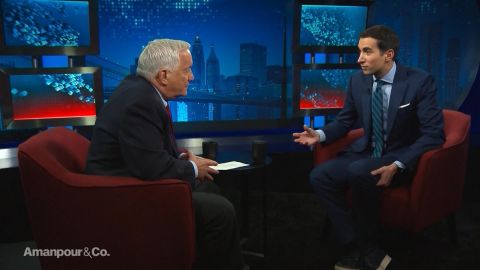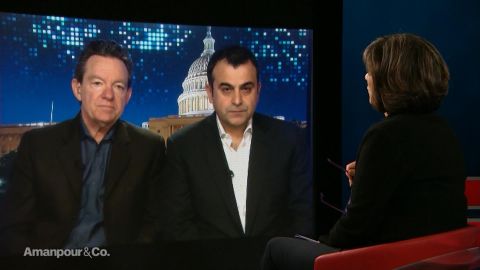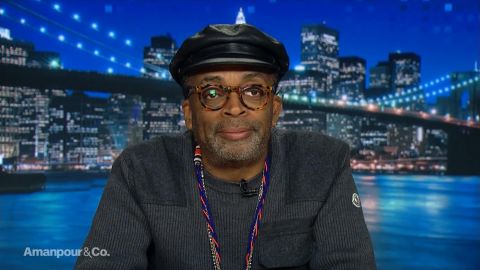Read Transcript EXPAND
AMANPOUR: What did you make of the focus of Secretary Pompei’s speech in Cairo today? Larry, you were a friend of Jamal’s, you first.
WRIGHT: Well, what I was thinking when I was reading through Pompeo’s speech is how much faith Jamal had in American policy much more than I do sometimes. He believed that America needed to have a strong presence in the Middle East. And yet, what — our presence has been so wavering. I don’t think we’ve ever had a more volatile and uncertain policy in the region than we do right now and I don’t think that the secretary’s speech has changed any of that.
AMANPOUR: And, Ali, I mean, you have been right at the heart of the sort of geopolitics of all of this inside the FBI and outside doing your security work, what do you make of Secretary Pompeo, I mean, kind of departing with traditional American speech in foreign lands never once mentioning human rights, never once mentioning political pluralism and tolerance, only mentioning democracy once and that in relation to “Iraq’s thriving democracy”?
SOUFAN: It’s a sad day. And frankly, you know, I agree actually with one thing the secretary said today that, one, America retreat, chaos follows, and that’s very true. And we are basically witnessing when America tweets also chaos follows, and that’s unfortunate what we see today in the Middle East, with the president’s tweet about Syria that resulted with Secretary Mattis leaving. I think there’s a lot of confusion in the region this is why Secretary Pompeo went to the Middle East to tell our allies and friends and partners who are very anxious about our Syria policy, that the president of the United States basically does not speak for the United States but he speaks for the president of the United States amid this confusion for our strategy and our policy in the Middle East. We see five of the countries, for example, that Secretary Pompei is visiting do not have ambassadors. Two years later over the Trump administration and still we don’t have any ambassadors in these important countries. You know, we have 40 vacant ambassadorship still around the world, the number two most senior position in State Department that oversees the Middle East and the Near East do not — are still vacant and we don’t have assistant secretaries for these positions. So, I think, you know, with all the respect to Secretary Pompeo before we start pointing the finger at President Obama, we need to look at our own policy in the Middle East, a policy that is still supporting the atrocity in Yemen, the U.N. and the U.N. secretary general declared Yemen to be the worst humanitarian disaster in the world today,
About This Episode EXPAND
Christiane Amanpour talks with Ali Soufan & Lawrence Wright about the Middle East; & director Spike Lee about his film “BlacKkKlansman.” Walter Isaacson speaks with Andrew Ross Sorkin about how credit cards are being used to finance mass shootings. *A bill discussed on this program as having passed through the House of Representatives ended up being delayed in Congress. We apologize for the error.
LEARN MORE


